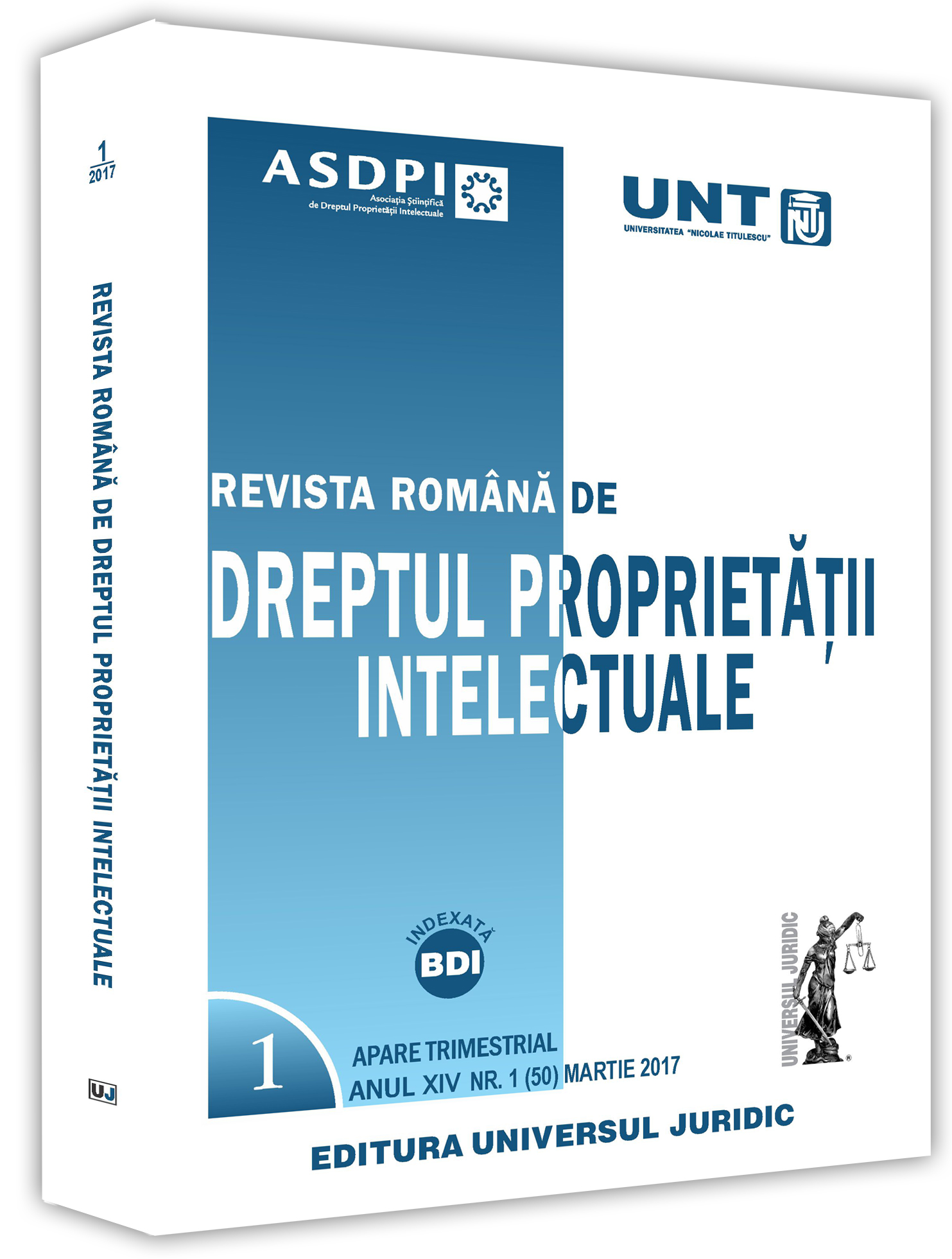„Relativitatea” motivelor absolute de refuz a unei mărci
The “relativity” of the absolute grounds for refusal of a trademark
Author(s): Pavel Eduard SorinSubject(s): Law, Constitution, Jurisprudence
Published by: Universul Juridic
Keywords: IP; intellectual property; Law 84/1998; Romanian trademark law; trademark;
Summary/Abstract: Under Law 84/1998, a trademark may be invalidated due to the existence of relative or absolute grounds for refusal. While relative grounds for refusal protect a particular interest (the conflict of the trademark with prior rights owned by third parties), absolute grounds for refusal protect a general interest such as legal certainty, compliance of Law 84/1998 with EU Regulations, international conventions to which Romania is party and with Romanian Constitution. For both absolute and relative grounds for refusal, Law 84/1998 provides a statutory limitation period within which a trademark can be invalidated after registration. This statutory limitation period expires after five years since the registration of the trademark. However, a trademark filed with bad-faith is not subject to this statutory limitation and can be invalidated anytime throughout its period of protection. While the prescribed statutory limitation period is fully justified for invalidation of trademarks due to relative grounds for refusal (statutory limitation operates here as penalty applied to trademark's owner, who was not diligent enough to exercise their trademark rights against third party who registered the later infringing sign), it is not justified for invalidation proceedings based on absolute grounds, in which case the statutory limitation is liable to bring Law 84/1998 in conflict with EU law and the Romanian Constitution.
Journal: Revista Română de Dreptul Proprietăţii Intelectuale
- Issue Year: 2017
- Issue No: 1 (50)
- Page Range: 199-215
- Page Count: 17
- Language: Romanian
- Content File-PDF

